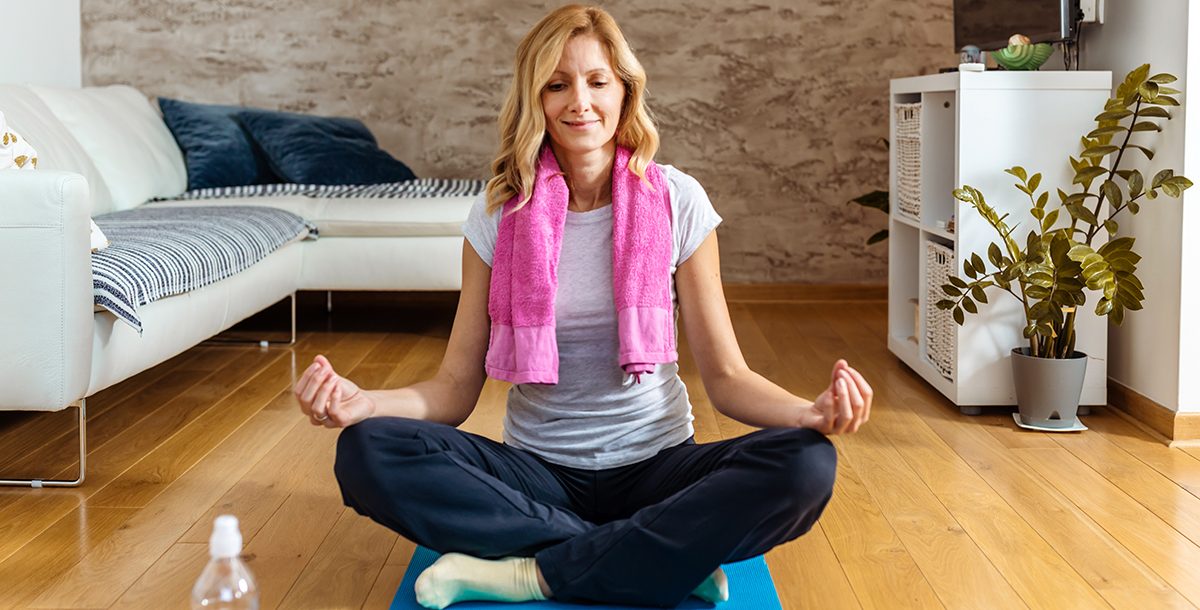Are you feeling COVID-19 fatigue? You’re not alone. As the pandemic continues, people are growing weary of physical distancing restrictions. They’re tired of disruptions in daily routines, limited social interactions and uncertainty about the future.
The intense and prolonged stress causes a mental, emotional and even physical fatigue. The first step in coping with COVID-19 fatigue is to recognize that it’s real. However, it’s also about finding effective coping skills to improve your sense of well-being.
Check out these five suggestions.
Exercise
Physical exercise is your number one antidote for stress. Activity releases endorphins that calm you. It also burns calories and helps you shed the adrenaline that builds up from frustration.
Schedule a workout into your daily routine. From taking a walk to doing pushups, any activity is positive. Follow along with an exercise video, run outside or do yoga in your living room. Whatever works for you is the right thing to do.
In addition to regular workouts, watch your eating habits and minimize drug and alcohol use.
Talk it out
Talking about your feelings also helps reduce the effects of COVID-19 fatigue. Simply verbalizing your frustrations, fears, anger and other feelings helps you understand and move on from them.
Connect with trusted friends and family members. If you can’t do this in person, reach out by phone, video or social media. A virtual visit doesn’t completely fill the void when we’re naturally craving social interaction. However, it does help to see a loved one’s face and hear their voice. Remember the situation is temporary, and it’ll gradually change. We won’t be in a pandemic forever.
Act instead of react
Make a switch in your thinking from being the victim of unprecedented circumstances to being in control of the situation. As inconvenient as it is, you can choose to wear a mask because you know it may help the pandemic end faster. This is a very different thought process than feeling forced to wear a mask. Make conscious decisions to act in ways that will solve your problems instead of reacting to the situations you’re in.
Also, schedule alone time for yourself. Having sufficient time to decompress is essential to reducing the negative effects of stress. Watch a movie, get out in the yard, meditate or give attention to that hobby you love. Keep in mind that some people need more time to themselves than others.
Be present
You’re dealing with a lot. Remember to be kind to yourself and live in the present. Make time to play with your kids, give yourself kudos when you finish your sit-ups, enjoy the sunset. Feel gratitude for the positives in your life, and even the challenges. Staying present helps you remain patient as we wait for life to return to normalcy.
Limit stressful triggers
The pandemic and multitude of other social issues, politics and natural disasters can bring a new set of stressful triggers into your life. Aim to minimize the negative impact of constant COVID-19 updates and breaking news. Limit your news intake to once a day and only tune into reliable, unbiased sources.
The people around you can also increase your stress. Curtail the frustration of interruptions from family members while you’re trying to work or study from home. Post your work hours, close the door and set a standard for private time. Identify any other triggers that make your angry, lonely, sad, aggravated or upset. Pinpoint ways to keep them at a minimum.
As you continue to navigate your way through the pandemic, be good to yourself. Adopt effective coping skills that can help you feel healthier, happier and more hopeful.
Stay updated on what Mercy Health is doing related to COVID-19.
Additionally, the COVID-19 vaccine remains the best way to help prevent severe illness and protect others. Learn what some of our providers have to say regarding the COVID-19 vaccine.






